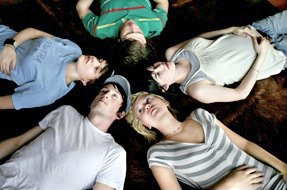 One of the unfortunate byproducts of our continually accelerating internet and information age – especially now that we have a dizzying array of devices to connect and be always-on – is how challenging it is to take time away for something we all take for granted: contemplation.
One of the unfortunate byproducts of our continually accelerating internet and information age – especially now that we have a dizzying array of devices to connect and be always-on – is how challenging it is to take time away for something we all take for granted: contemplation.
Harvard Business Review (HBR) published this article about a Boston Consulting Group (BCG) survey that showed, ”people in professional services (consultants, investment bankers, accountants, lawyers, IT, and the like) simply expected to make work their top priority. They believe an “always on” ethic is essential if they and their firms are to succeed in the global marketplace.”
I feel their pain since I’m absolutely “always on” and “always connected,” often feeling guilty if I’m not working or putzing around on some project. You probably are doing this too since it’s likely you’re at home in the evening, or on weekends, preparing presentations, reading journals, checking email, and performing other tasks that are probably easier to accomplish when other workday distractions are at a minimum.
BCG also discovered in that study that, ”94% of 1,000 such professionals said they put in 50 or more hours a week, with nearly half that group turning in more than 65 hours a week. That doesn’t include the 20 to 25 hours a week most of them spend monitoring their BlackBerrys while outside the office. These individuals further say they almost always respond within an hour of receiving a message from a colleague or a client.”
Whoa. That means that these consultants are, practically speaking, always working. The problem with that sort of response time too is an growing expectation that people will be paying attention to their turned on and connected devices, able to receive a notification of a message, and are willing and eager to get back to us and BCG’s consultants were suffering from significant (and increasing) stress related to being seemingly “on call” constantly.
Is this the sort of future workplace behaviors we want for ourselves and our children in what is becoming an always connected world?
Fortunately, BCG found that time off was key to both productivity and the quality of consultant work. Predictable time off was even more important and is the name they gave to designated periods of time consultants must shut down and turn off work-related tasks and communications and was in addition to normal ebbs and flows of their work.
Being more productive and delivering higher quality work was the goal (and keeping their consultants happy and working with reduced stress a secondary one) but contemplative time is something I’ve found is as important (if not more so) than simply getting more stuff done and with higher quality.
When working feverishly or interacting with clients, I often ask, “Is it the right stuff I’m getting done? Am I considering important, timely and relevant input? Or am I even seeing input that might appear, once I’m in a different mental state? Do I really need to respond to them at 7pm this evening?” Too often I realize I’m not sure anymore, so take steps to tear myself away, turn stuff off, and put myself in to a contemplative mode.
Even though I might not be actively working on some client problem when off and in contemplative mode, flashes of insight almost always come from the most unlikely sources.
Case in point: I was working on particularly vexing partnership at a former company and was watching the movie Casablanca with Humphrey Bogart and Ingmar Bergman. While I won’t go in to the details of the negotiation, suffice to say that the movie’s intrigue, character relationships, double crosses and who you can trust or not made me stop and chuckle: it gave me complete insight in to the negotiation and the people involved!
I submit ensuring that you have contemplative time built-in is an imperative and a skill you need to learn now. No question that some people will use that sort of time to goof off, but with focused contemplative time you can help yourself understand even the most daunting problems and approach them from a new perspective.
If you’re building an application or developing a startup company, tearing yourself away to put yourself in a different context or environment will nearly always lead to new insights. You’re still mulling over the problems, but when you return refreshed from your contemplative time off you’ll see those problems or tasks from a different angle and with a fresh perspective.
So take time off this summer…it will be critical to your success.